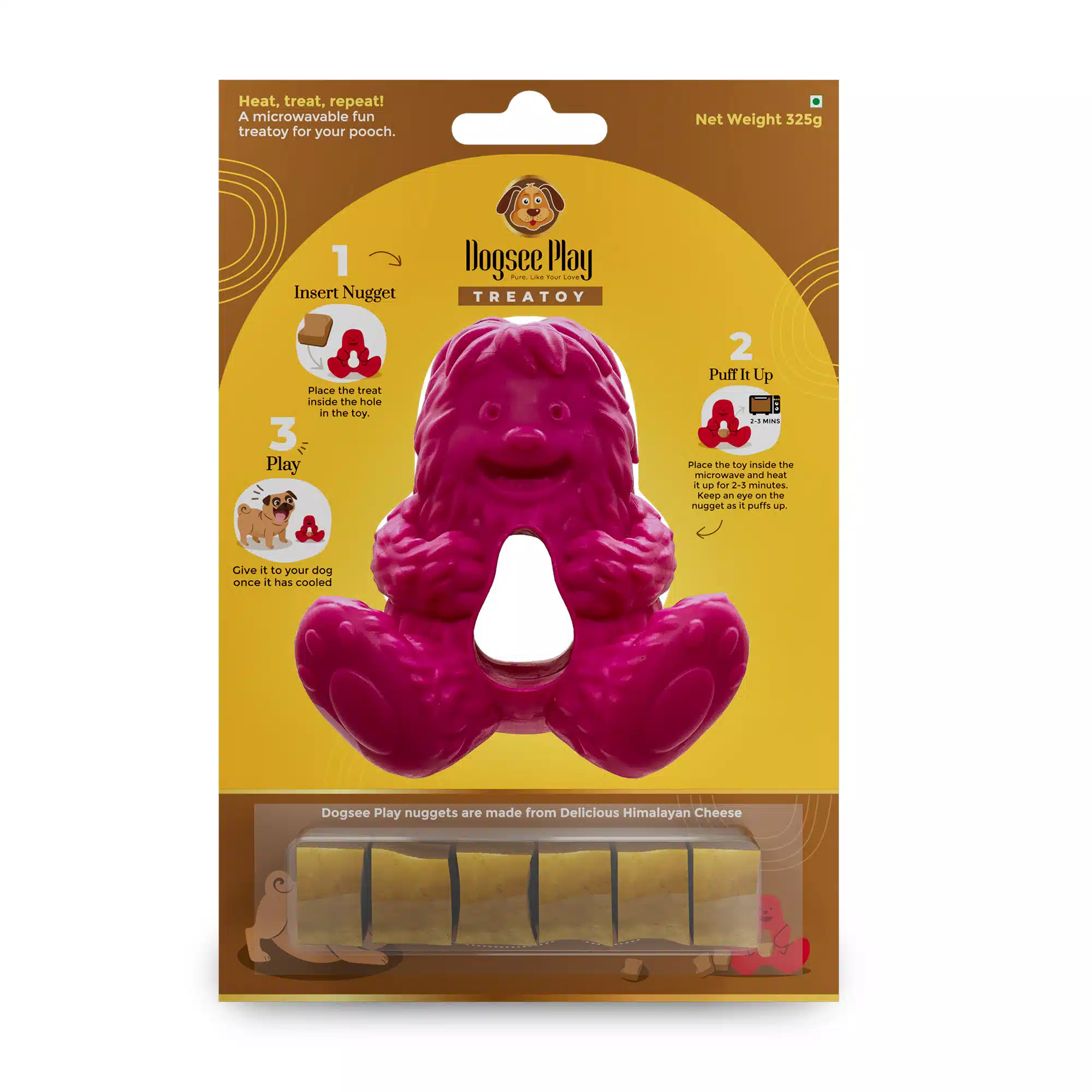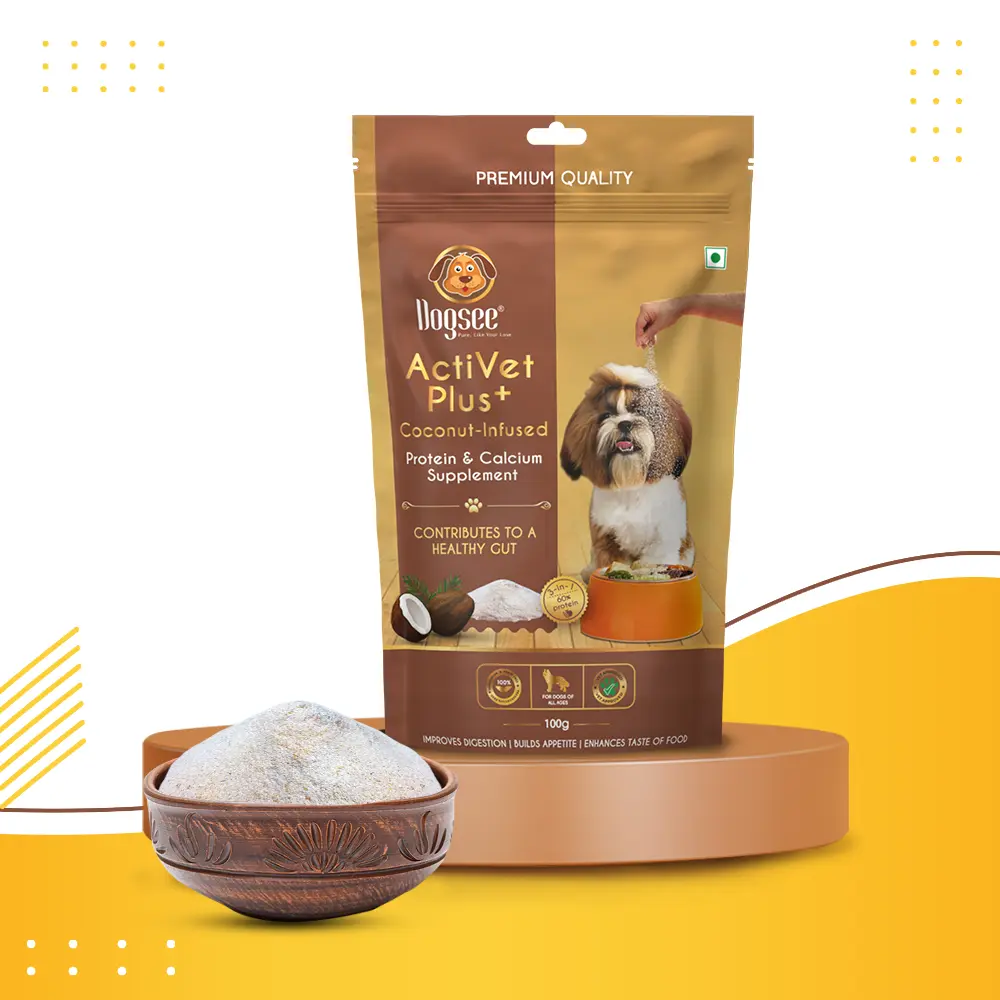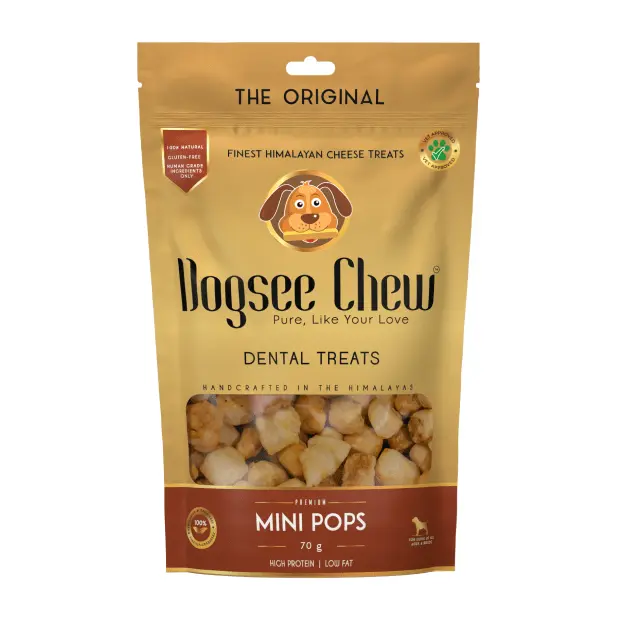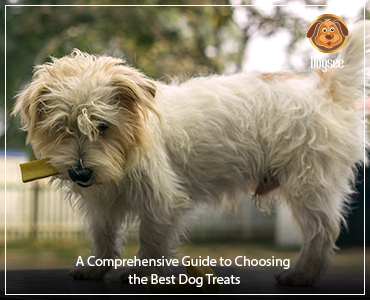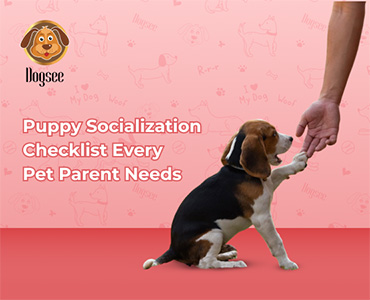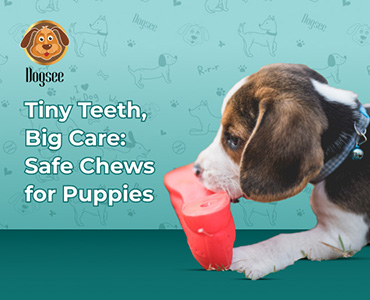
Ever wondered what it takes to raise a healthy puppy? Well, embarking on the journey of raising a healthy puppy is an exciting yet challenging endeavor that requires dedication, patience, and a wealth of knowledge.
As you welcome your furry friend into your home, you'll undoubtedly encounter various hurdles that come with the territory of puppyhood.
In this blog, we'll delve into the common problems faced by pet parents while raising a puppy, offering insightful tips and solutions to navigate these challenges seamlessly.
From potty training woes to addressing separation anxiety, we'll explore each issue in detail, providing a comprehensive guide to help you overcome obstacles and foster a positive environment for your new canine companion. We’ll also explore how Dogsee can be of great help in this journey.
Common Problems While Raising A Puppy
Potty Training Issues:

Potty training can be challenging as puppies take time to grasp the concept of going outdoors. Consistency is crucial - establish a routine for bathroom breaks, praise them for outdoor success, and clean indoor accidents thoroughly to eliminate scent markers.
Chewing and Destructive Behavior:
Teething puppies often resort to chewing on inappropriate items. Provide a variety of chew toys to soothe their gums, use bitter sprays on forbidden objects, and redirect their attention to acceptable alternatives to curb destructive habits. Additionally, incorporating consistent and positive reinforcement during this phase helps reinforce good behavior and establishes healthy chewing habits for a lifetime.
Excessive Barking:
Puppies bark for various reasons, including boredom or seeking attention. Identify the cause of barking, use positive reinforcement for quiet behavior, and provide mental stimulation through toys or puzzles to keep them occupied. Additionally, engaging in regular interactive activities and incorporating obedience training sessions contributes not only to mental stimulation but also strengthens the bond between you and your playful pup.
Separation Anxiety:
Puppies may experience anxiety when left alone. Gradual desensitization by leaving for short intervals, creating a comfortable space, and incorporating comforting items or background noise can help ease separation anxiety. Furthermore, establishing a consistent routine before departure and returning calmly can reassure your puppy, gradually building their confidence and minimizing stress during alone time.
Aggressive Behavior:
Aggression in puppies may stem from fear, territorial instincts, or inadequate socialization. Professional training, gradual exposure to various environments and people, and identifying triggers are essential for addressing and correcting aggressive behavior. Additionally, reinforcing positive interactions and using reward-based training methods play a crucial role in reshaping their behavior and fostering a more sociable disposition.
Not Eating or Picky Eating:
Some puppies may be finicky eaters or lose interest in food. Experiment with different types of high-quality puppy food, establish a consistent feeding schedule, and consult with a vet to rule out any underlying health issues impacting their appetite. Moreover, introducing variety in their diet with occasional healthy treats can entice their taste buds and ensure they receive a well-rounded nutritional intake.
Excessive Energy:
High-energy puppies can become restless, leading to behavioral issues. Regular exercise, both physical and mental, through interactive play, walks, and puzzle toys can help burn off excess energy and keep them content. Additionally, incorporating structured training sessions into their routine not only channels their energy effectively but also strengthens the bond between you and your lively companion.
Health Concerns:
Puppies are prone to various health issues, including parasites and infections. Regular vet check-ups, appropriate vaccinations, and preventive care measures, such as flea and tick control, are crucial for maintaining their overall health. Furthermore, discussing a tailored wellness plan with your veterinarian ensures proactive management of potential health concerns, contributing to the longevity and well-being of your furry friend.
Difficulty in Training:
Some puppies may struggle with training commands or exhibit stubborn behavior. Utilize positive reinforcement, break training into short sessions, and seek guidance from professional trainers to address specific challenges and enhance the training process.
Sleep Disturbances:
Puppies might have difficulty settling down at night. Establish a consistent bedtime routine, provide a comfortable and quiet sleeping area, and avoid stimulating activities before bedtime to promote better sleep habits.
Socialization Challenges:
Puppies may display fear or aggression towards unfamiliar people, animals, or environments. Gradual exposure, positive reinforcement for calm behavior, and supervised interactions with diverse experiences can enhance their socialization skills over time.
Tips For Raising A Happy and Healthy Puppy
Preparing Your Home:
Creating a secure and nurturing environment for your puppy is the cornerstone of their well-being. Beyond the basics of puppy-proofing your living spaces, consider investing in a variety of stimulating dog toys and activities that cater to your puppy's specific needs.
Designate not just a play area, but a safe haven, complete with a cozy bed, ensuring your new companion feels secure and loved from the moment they step into their forever home.
Nutrition:

Navigating the nutritional needs of your growing puppy is a crucial aspect of responsible pet parenting. Collaborate closely with your veterinarian to craft a personalized diet plan, taking into account your puppy's breed, size, and any specific health considerations.
Opt for high-quality puppy food that prioritizes essential nutrients, setting the stage for healthy growth and development. Consistent feeding schedules not only provide structure but also contribute to the establishment of a routine that can positively impact your puppy's behavior.
It is extremely important to fulfill a puppy’s nutritional needs and provide them with all the essential nutrients. Puppies grow constantly and are always active, making it necessary to keep track of their diet to ensure they receive complete nutrition.
The easiest way to meet their nutritional requirements is by incorporating an added supplement, such as Dogsee Activet Plus+. This Dogsee supplement provides puppies with all the essential nutrients, helping pet parents fulfill their pups' needs.
Vaccinations and Preventive Care:
A proactive approach to your puppy's health involves staying informed about your veterinarian's recommended vaccination schedule. Beyond vaccinations, discussions about preventive care for common issues like parasites, ticks, and fleas are paramount. Regular veterinary check-ups provide a comprehensive overview of your puppy's health, offering early intervention opportunities and establishing a solid foundation for a lifetime of well-being.

Training Basics:
Early training is a cornerstone of a well-adjusted and well-behaved adult dog. Begin with fundamental commands such as sit, stay, and come, employing positive reinforcement techniques like treats, praise, and play. Consistency in training sessions, combined with patience, not only shapes your puppy's behavior but also deepens the bond between you and your furry friend.
It is also important for pet parents to note that using the right kind of training is as important as the training itself. That’s why Dogsee offers a special range of dog training treats specifically made for training purposes. Early socialization, exposing your puppy to various people, environments, and experiences, significantly contributes to their adaptability and overall demeanor.

Socialization:
Introducing your puppy to a diverse range of experiences is key to fostering social skills and preventing behavioral issues later in life. Puppy socialization classes provide a structured environment for positive interactions with other dogs and people.
Encouraging exposure to various sights, sounds, and environments at an early age helps build resilience and a confident demeanor in your puppy, ensuring they grow into a well-rounded and sociable companion.
Exercise and Playtime:
Beyond the physical benefits, regular exercise and playtime are essential for your puppy's mental well-being. Providing a variety of age-appropriate toys stimulates their cognitive abilities and prevents boredom.
Tailor play sessions to your puppy's energy levels, gradually increasing intensity as they grow. This not only promotes physical health but also strengthens the bond between you and your puppy, creating a shared experience of joy and connection.

Grooming and Hygiene:
Incorporating grooming practices into your routine is a proactive measure for your puppy's health. Regular brushing helps maintain a healthy coat, preventing matting and skin issues. Gradual introduction to bathing and nail trimming, paired with positive reinforcement, ensures a positive association with these grooming activities.
Regular checks of ears, teeth, and eyes contribute to the early detection of potential health issues, reinforcing the importance of a comprehensive grooming routine.
Establishing Routine:
Structured routines provide a sense of security for your puppy, contributing to their overall well-being. Consistent daily schedules for meals, walks, and playtime establish predictability, reducing anxiety and promoting good behavior. The establishment of routines extends to bedtime rituals, creating a comforting and secure environment that supports your puppy's mental and emotional health.
Health Monitoring:
Vigilance in monitoring your puppy's health is a continuous responsibility. Regular observations of their weight, appetite, and behavior can provide early indicators of potential issues. Prompt reporting of any concerns to your veterinarian ensures timely intervention and a proactive approach to your puppy's health.
Regular veterinary check-ups, beyond vaccinations, are invaluable for a comprehensive overview of your puppy's well-being, contributing to their longevity and happiness.
Spaying/Neutering:
The decision on when to spay or neuter your puppy is a crucial consideration. Consult with your veterinarian to determine the optimal timing based on factors such as breed, size, and overall health. Beyond population control, spaying or neutering can have health benefits, reducing the risk of certain reproductive-related diseases. Following post-operative care guidelines diligently ensures a smooth recovery for your puppy, setting the stage for a healthy and happy adulthood.
Building a Strong Bond:
The foundation of a lifelong, fulfilling relationship with your puppy is built on trust, love, and positive reinforcement. Spending quality time together, whether through play, walks, or simple moments of affection, fosters a strong bond. Consistency in training, combined with a patient and understanding approach, ensures a positive learning experience for your puppy.
As you invest time and care into building this bond, you're not just raising a pet; you're creating a cherished companion who will bring immeasurable joy and love into your life for years to come.

Conclusion:
In conclusion, the journey of raising a happy and healthy puppy is multifaceted but immensely rewarding. By choosing the right puppy, creating a nurturing environment, and prioritizing their physical and mental well-being through nutrition, training, and preventive care, you lay the groundwork for a lifelong companionship filled with joy. The commitment you make to your puppy's health and happiness will be repaid with unconditional love, making every moment together a cherished part of your shared adventure.
Frequently Asked Questions (FAQs):
1. How is Dogsee Mini Pops a good training treat?
Answer: Mini Pops are made of Himalayan Cheese which makes them nutritious and healthy for dogs. The small size of the treats aids in longer training sessions and optimum reward without overfeeding your pet.
2. Can Mini Pops be given as a meal?
Answer: No, it cannot be given as a meal. These treats should be seen as a supplement to their diet.
3. Why do dogs need added supplements?
Answer: Dogs may require additional supplements to ensure adequate nutrition for their overall health. While a well-balanced diet is essential, certain factors can have an impact on nutrient absorption and utilization in dogs. Supplements can help fill nutritional gaps, especially if your dog has specific deficiencies, medical conditions, or dietary restrictions.
4. How or when to use Dogsee Activet supplement powder?
Answer: Dogs can consume 2 teaspoons of protein-packed multivitamin supplement twice daily, mixed with food or given separately with honey, peanut butter, or warm water, meeting essential nutrient requirements.
5. What is this supplement made of?
Answer: The supplement 'Dogsee Activet Plus+' is made of high-protein powdered cheese. It contains approximately 60% protein and 5.9% fibre, which promotes your dog's overall health by providing essential amounts of multivitamins and calcium. This Himalayan cheese dog food seasoning will keep your dog healthy and happy!
Additionally, be sure to look at the wide range of products we provide, including toys, hard bars, cookies, and crunch treats.
Don't forget to follow us on Instagram and Facebook so that you stay up-to-date about our latest products and promotions.
 HELPFUL2 people found it helpful
HELPFUL2 people found it helpful
Related Blogs
Subscribe to Our Blogs
and never miss on the latest update!








